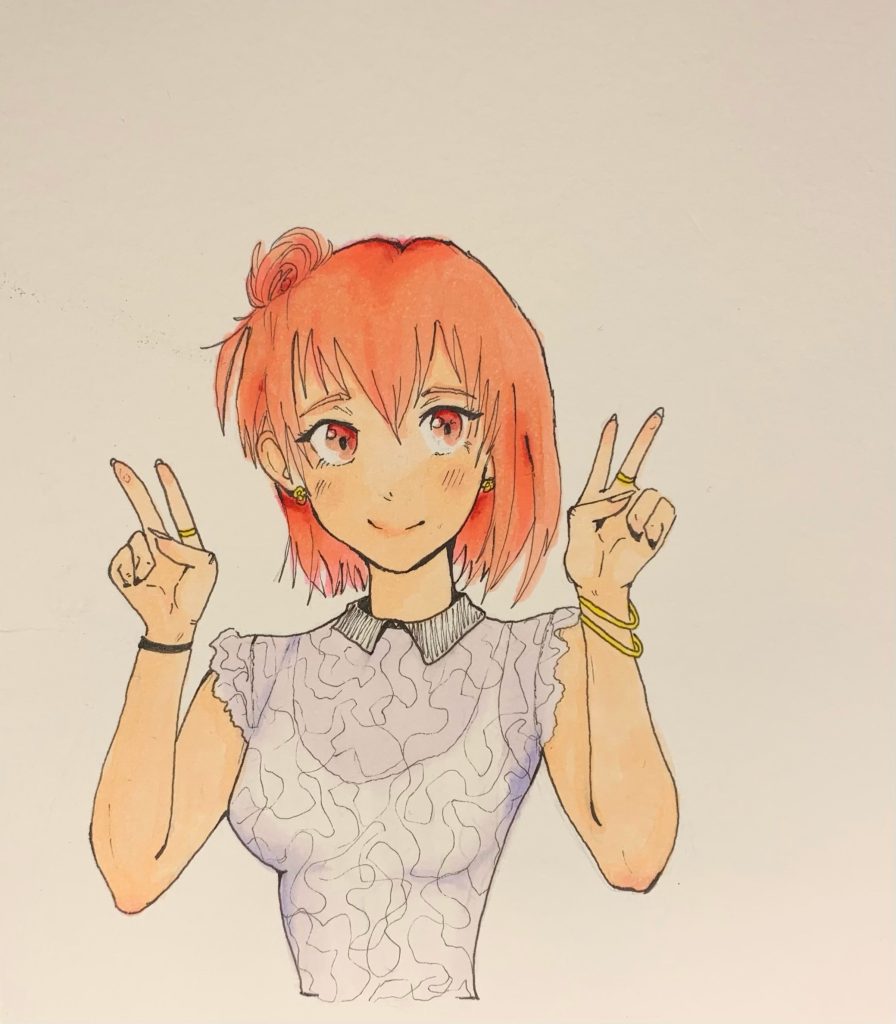Oregairu: Do You have the “Real Thing?”
By Jack McDonough, 2021 prospective JET

In my last article, I wrote about Kaguya-sama: Love is War: a romantic comedy that is both funny and romantic. Today, I want to tell you about My Teen Romantic Comedy SNAFU, which is not very funny and barely has any romance at all but provides its audience with outstanding drama and impactful character development.
The anime is based on the light novel series Yahari Ore no Seishun Rabukome wa Machigatteiru by Wataru Watari, meaning My Youth Romantic Comedy is Wrong, As I Expected, and is abbreviated to Oregairu. The story, which first aired in 2013 and finished last year, follows three characters: the pragmatic, loner Hachiman Hikigaya, the beautiful, erudite Yukino Yukinoshita, and the pretty, energetic Yui Yuigahama as they lead Soubu High’s Service Club. The audience experiences the story through Hachiman’s cynical point of view, and much of the story is delivered in internal monologues that show off his pessimistic nature. Hachiman is forced to join the service club by his teacher, who fears Hachiman’s way of thinking will never change and that Hachiman will be doomed to a life of reclusion. Yukino begrudgingly accepts Hachiman into the club and their story together begins.
Throughout the series, Hachiman, Yukino, and Yui solve problems that their classmates bring to the Service Club, usually normal high school social situations like helping someone ask out their crush or planning a school dance. With each problem, Hachiman and Yukino offer separate solutions: Hachiman offers expedient solutions that would solve everyone’s problems at the expense of himself, while Yukino offers solutions that would push her to exhaustion, but allow for everyone to be happy with the outcome. In one instance, a classmate by the name of Tobe asks the club to help him confess his love to his crush. When Hachiman finds out that the object of Tobe’s affection does not like Tobe back, Hachiman lies and confesses to the girl to save Tobe from embarrassment. While Hachiman believes that since no one likes him, embarrassing himself to save Tobe means that no one has to get hurt; in reality, Yukino and Yui are crushed when they see Hachiman sacrifice himself and tell him to stop embarrassing himself. The two girls grow to care about Hachiman and can’t bear to see his sacrificial acts any longer.
The show relies on Hachiman’s monologues and dialogues with other characters. Most scenes are of mundane, everyday things, yet feel incredibly tense due to the subtext of the words of each character; Oregairu is drama at its best. While season one’s animation is just ok, seasons two and three are beautiful and when combined with the great musical score and phenomenal voice acting, you’ll be hard-pressed to find a better drama anime.
While watching this show, I felt uncomfortably similar to Hachiman, at least when thinking about my high school self. Hachiman changes from an isolated pessimist to someone who wants to find, what he calls, “the real thing” with his friends Yukino and Yui. Hachiman initially believes that he needs to bottle up his emotions and never be vulnerable in front of anyone. He later realizes that it’s better to care and it’s better to have something that could lead to heartbreak than to go through life alone; it’s ok to ask for help and it’s ok to say what you really feel. When you step back and think about all of the tension in Oregairu, you realize that the root cause of grief is denial; the characters deny their feelings and allow their agony and heartbreak to fester rather than accept reality and allow themselves to feel and grieve. So my recommendation is to get some tissues, get some ice cream, and allow yourself to get attached to Oregairu. Afterward, ask yourself: “do I have the real thing?”


Comments are closed.